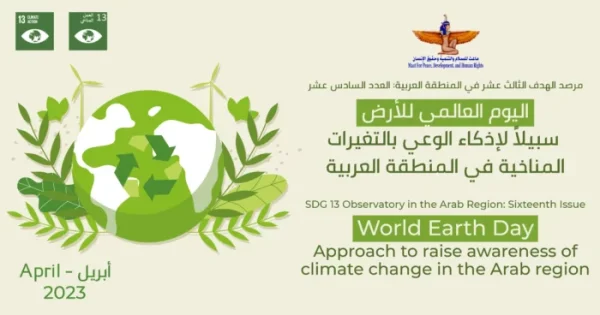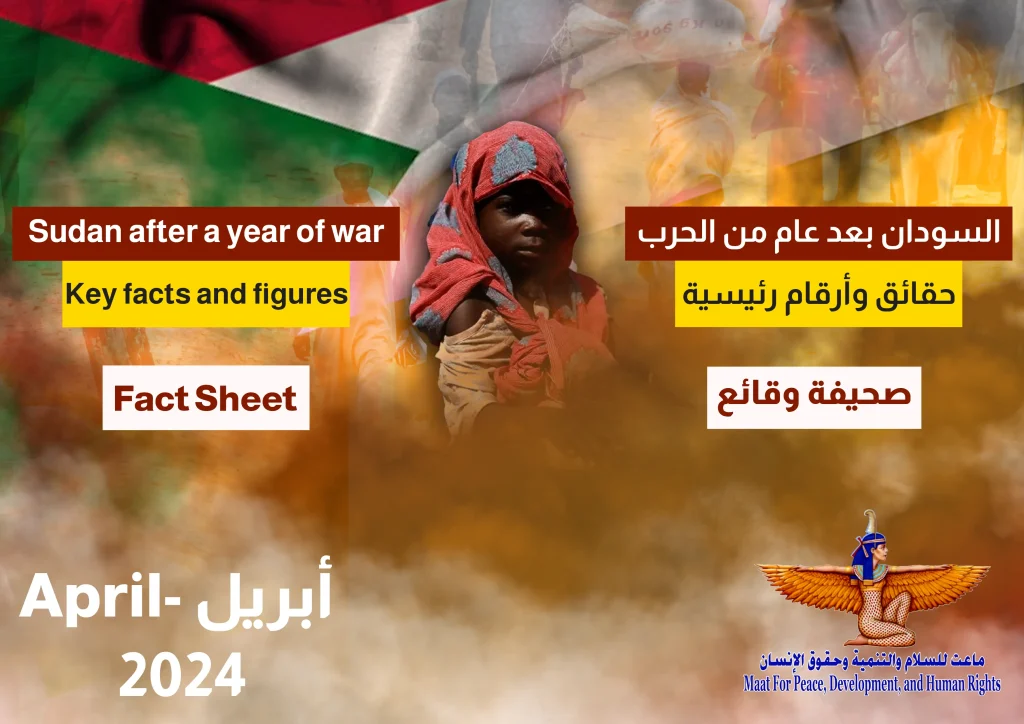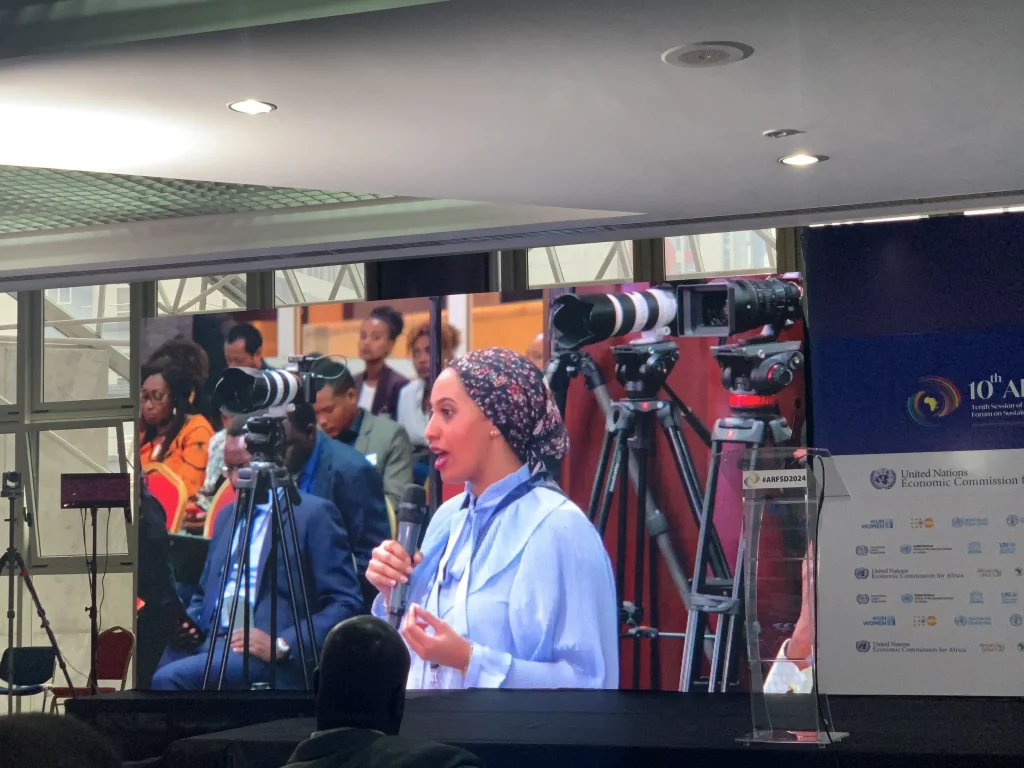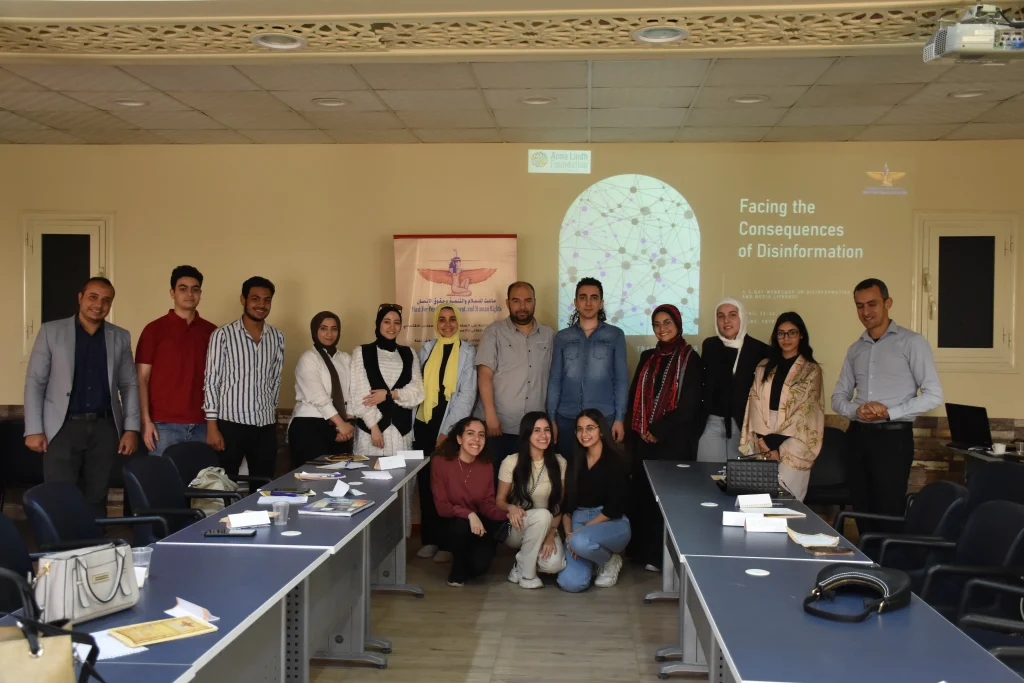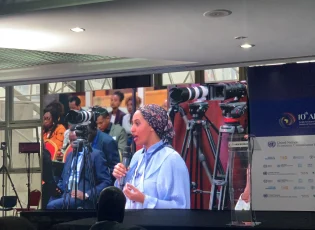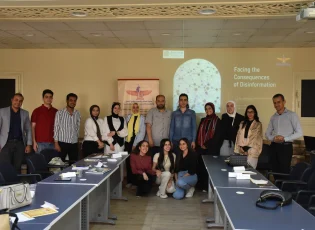Maat: International Earth Day... Approach to Raise Awareness of Climate Change in the Arab Region
Okeil: We appreciate the Arab League's efforts in the launch of Arab strategy to finance climate action, and recommend expediting its entry into force
Al-Akkad: We call for the launch of a media strategy to raise Arab awareness of climate change and its serious consequences
The world celebrates Earth Day on April 22 every year. This Day happens to come amidst the severe consequences of climate change and human-induced natural disasters as well as irrational practices that destroy biodiversity such as deforestation, land-use change, intensive agriculture and livestock production or the growing and criminalized trade in wildlife, which are all accelerating the pace of ruining Earth.
Within the framework of its keenness to promote sustainable societies that preserve human life in a safe and sustainable manner, Maat for Peace, Development and Human Rights releases the sixteenth issue of “SDG 13 Observatory in the Arab Region” under der the title “International Earth Day... a Way to Raise Awareness of Climate Change in the Arab Region", in order to track the good practices as well as the challenges faced by Arab countries in achieving the SDG13 of the 2030 Agenda for Sustainable Development.
April Observatory reviewed the national efforts made by the countries of the Arab region on the sidelines of their celebration of World Earth Day, such as launching afforestation campaigns, green initiatives, awareness-raising sessions, as well as media campaigns aimed at mitigating the repercussions of climate change. The Observatory also referred to the efforts of the League of Arab States in combating climate change during April. Department of Environmental and Meteorological Affairs of the League of Arab States organized the 33rd coordination meeting of the Arab negotiating group on climate change, with the participation of more than 80 representatives from all Arab countries.
In the sixteenth issue 16 of the Observatory, Mauritania came first as one of the most prominent countries in the Arab region negatively affected by climate change, where a set of geographical factors and natural conditions interfere causing the exacerbation of the climate crisis and its negative impacts, topped by desertification and drought. The waves of droughts that have been hitting the country for years have destroyed large areas of the country's agricultural land. The land degradation crisis is, indeed, a direct factor affecting poverty, food insecurity and conflict, all along with people’s poor access to resources.
Commenting on April’s issue of the Observatory, Ayman Okeil, a human rights expert and President of Maat for Peace, Development and Human Rights, referred to a number of prominent regional efforts in the climate file during this month, as the League of Arab States, specifically the Department of Environment and Meteorology Affairs and the Technical Secretariat of the Council of Arab Ministers Responsible for Environmental Affairs (CAMRE) - on the sidelines of World Earth Day - organized the 33rd coordination meeting of the Arab negotiating group on climate change via videoconference technology, with the participation of more than 80 negotiators from all Arab countries, in addition to experts from various Arab organizations and UN organizations.
The meeting discussed the strategy of the Arab countries to obtain and mobilize climate action financing during the period (2022-2030), which was completed and presented to the CAMRE in October 2022, and more opportunities were given to countries to review it and make comments about it in preparation for its launch at the next Conference of the Parties (COP 28) to be held in Dubai, UAE, at the end of this year.
As for the international efforts in the climate action file, Okeil praised the efforts of UNESCO in launching the "Litter Less Campaign" aimed at raising environmental awareness of the dangers of waste, especially plastic, on health and planet climate. For his part, the human rights expert called on civil society organizations and parties concerned with climate action in the Arab region to work jointly with the ministries of environment in the countries of the region, which have not yet revealed their strategy for climate action to accelerate the launch of their climate strategy and put it into action.
Iman Akkad, a researcher in the Sustainable Development Unit at Maat, stressed on the orientation of Arab efforts towards creating a joint scope of interventions on climate action in which all components of society participate, including private sector companies, civil society institutions, bodies, agencies, ministries, and even experts working in the field.
The researcher recommended the Arab countries to launch an Arab media strategy aimed at raising awareness of climate change and its severe consequences, in a way that supports the rearrangement of the priorities of the local citizen on regional issues of real importance, especially climate issues.
It is noteworthy that the SDG 13 Observatory is a research periodical issued by Maat under the umbrella of the "Maat Platform for Climate Action", launched at the beginning of 2023. The Platform aspires to enhance the work of civil society in the field of climate action, by launching studies and periodicals aiming to raise levels of climate awareness, in addition to organizing a series of training workshops and activities concerned with discussing mechanisms for addressing and combating climate change at all levels; national, regional and international.

 |
 |


